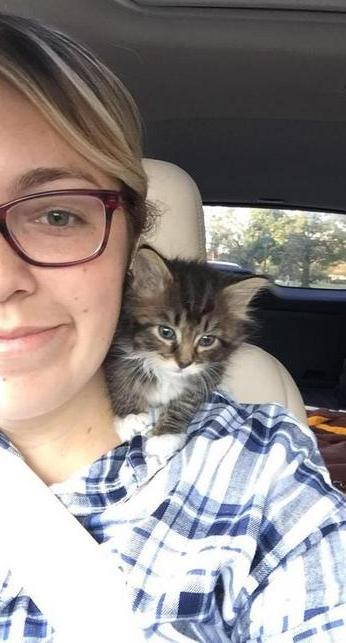Depends on the rescue (see the nice long rant below!). If you don't get selected for this dog, you can always ask if they would consider adopting to a student or if that is an automatic "no" from their organization. They may not have a hard and fast rule, but they should be able to tell you whether or not they think you are an appropriate placement for one of their dogs someday, even if there was a better match this time for the dog you applied for.
And, if this particular dog or rescue doesn't work out for you, take heart - that dog found a loving home! It'll be sad for you that the home wasn't yours, but if you know the dog gets a happy, loving family, it's a little easier to process. And there are lots of pups out there, yours is just waiting for you to find them! Good luck!
And now for a long rant....
From personal experience, I was turned down by a rescue previously because I was a graduate student so I didn't have an income. Which was dumb because at the time I had outside funding for school that covered my tuition and also provided me with a living stipend that was enough to pay for all of my expenses. I also had enough emergency savings that I could have paid for a lifetime of pet-care up front if I'd needed to. But their policy was 100% no job = no adoption.
I have also been turned down in the past by different rescues for 1. living in an apartment, 2. not having a fenced yard, or 3. because of my profession at the time (they assumed it wouldn't work out and I'd eventually return the dog because many people in my field that they had adopted to in the past had done the same).
What's especially frustrating is that now that we live in suburbia and meet all of the rescue "perfect adopter" criteria, our dogs ironically probably get less exercise and attention than they did when we were students living in an apartment. Full time jobs keep us away from the house for a much longer period of time every day than school ever did and it's very easy to just chill in the backyard with the pups rather than taking them on long walks or to the park. They also get far less consistency in training because we're not walking around a major city all the time where we really had to work to make sure that they heeled, ignored distractions, and so on.
Sometimes I really want to kick some of the rescues in the shins for being so judgmental about potential adopters because there are a lot of people out there taking great care of their pets who don't fit into their "perfect adopter" mold. And, really, all they would have to do is have a 20 minute conversation with someone to determine whether the potential adopter had thought through some of the rescue's concerns. (This is said as somebody who has volunteered and worked for rescues for several years, not just as somebody who has been on the adopting end).
In the end, you can never really tell anyway. I've helped place dogs in "perfect homes" to have them get returned shortly after for stupid reasons. (Like a couple who swore that a dog they adopted, who was the spitting image of a border collie, was "definitely a basenji" because he was more independent than their last border collie and harder to train. When they googled independent streaks in dogs they got onto some basenji breed description and were convinced that's what he had to be because he was stubborn in training. Never mind that he looked nothing like a basenji and they'd never even interacted with one in person before...) I've also placed dogs into "This seems like a terrible idea, but I really hope it works out" homes where the dogs are happy and loved and spoiled years later. Return rates seem to end up being about the same no matter how you run a rescue, but being less restrictive about adopters and the whole process certainly means that you can find more dogs homes in the same amount of time.







